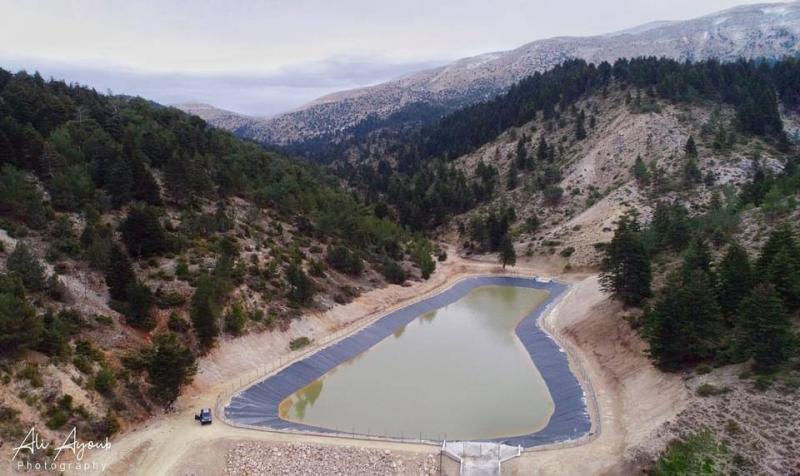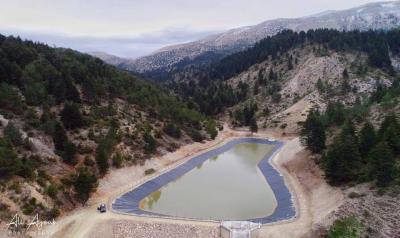The Municipality of Fneidq in Akkar announced the completion of an artificial lake for water collection to irrigate agricultural lands, with a capacity of 25 thousand cubic meters, in the area of Wadi Ain al-Shalash in the Qmoua region. This project was funded by the United Nations Development Programme (UNDP) and executed by the company "Jaitani Brothers."
The National News Agency reported that the lake is the first in the highlands of Fneidq to irrigate agricultural areas using drip irrigation technology, in a surrounding area with a circular diameter of approximately 2400 meters, through a network of canals that form an essential part of this project, which began in August of last year and was completed at the start of this year. The Mayor of Fneidq, Sheikh Samih Abdul Hai, stated that the lake project resulted from fruitful cooperation between the municipality and the UNDP since early 2020, where discussions were held about the living conditions of residents and ways to secure irrigation water sources during dry seasons, to assist in the development and diversification of crops, thus ensuring more local agricultural products.
Abdul Hai pointed out that several field visits were conducted by specialized experts and engineers from the UNDP to a number of sites proposed by the municipality in the Qmoua area in the highlands of the town. The decision was made to use suitable land in Wadi Ain al-Shalash, with an area of ten thousand square meters at an altitude of 1,800 meters above sea level, to establish an artificial agricultural lake that could be supplied with water from three nearby springs, as well as from snow and rainfall in winter.
The Mayor of Fneidq indicated that over 1,000 farmers would benefit from the lake's water to irrigate their lands located within a radius of 2400 meters in every direction, from Wadi Ain al-Shalash up to the area of Dhahr al-Keef. He stated, "This lake is the first in the highlands of Fneidq, and its completion cost around 480 thousand dollars, including the establishment of a network of underground pipes to carry water with a diameter of 5 inches, and more than 70 water connection points for irrigation via drip."
Abdul Hai noted that the lands were previously cultivated only with wheat, barley, and chickpeas due to a lack of irrigation water. However, now with the creation of this lake, farmers have the opportunity to diversify their crops, especially since this water is 100% clean and free from any pollution due to the absence of nearby housing around its sources, which means good agricultural production with high health and nutritional standards. He confirmed that the municipality aims to establish more of these lakes to develop agriculture and encourage farmers to cling to their lands and gain economically from them.




